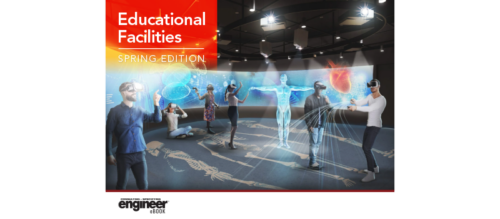Salary survey responses remain positive
Job satisfaction is up while company training programs are down. Read this year’s salary survey to find out where you and your company stand against others in your field.
The third annual Consulting-Specifying Engineer salary survey of mechanical, electrical, plumbing (MEP), fire protection, and lighting engineers shows that the average base annual salary in 2016 was $106,455 and the average non-salary compensation was $17,924. Non-salary compensation was up 25% over 2015 numbers. These numbers are based on the anonymous responses of professionals from a variety of engineering disciplines and at different levels in their professional career.
Of these respondents, 93.5% are male. The largest age groups responding include 60 to 64 years old (16.2%), 50 to 54 years old (14.9%), and 70 and older (12.3%).
Younger staff, defined by the U.S. Department of Labor as 40 or younger, equate to 22.7% of survey respondents (a slight uptick from only 20% last year). On the flipside, assuming people retire at 65, 20.7% of respondents are 65 years old or older. This, coupled with the reported lack of training at engineering firms, should be a concern for several engineering firms as their knowledge base is lost. See Figure 1 for the comparison of age groups over the past 3 years.
Many respondents seem to be content in their current positions; 94.2% indicated they have the same job title as they held last year. And nearly half (46.1%) have worked for their current employer for 10 years or longer.
The good news is that the economy continues to grow, and total compensation has grown for all respondents. As shown in Figure 2, compensation increased 1% to 4% for 42.7% of respondents, 5% to 9% for 38.2% of respondents, and 10% or more for 19.1% of respondents. Decreases were minimal.
When looking at what respondents specify, those who primarily specify electrical/power systems had the highest salaries in 2016, with total compensation coming to $136,299. The other core systems specified include fire/life safety (earning $130,526), mechanical systems ($115,519), and lighting ($109,771). See the compensation tables for a more detailed breakdown.
Job satisfaction
According to the survey, the roller-coaster economy has caused 53.9% of engineers to shift jobs over the past 10 years, up slightly from last year’s report. A little more than one-third (34.4%) of respondents have been working at their company less than 5 years, with 19.5% at the same company 5 to 9 years. See Figure 3 for the number of years respondents have worked in their respective industries.
In a dramatic shift, only 36.4% of respondents have a mentoring program at their firm (a nearly 20% drop from last year’s 51%). To counter that, 66.9% of respondents personally mentor junior staff. This is good because another 66.9% of respondents said that college graduates do not have the correct technical and practical skills as they enter the workforce. This is a disconnect from what firms are doing to train junior staff—only 34.4% have an official training program in place at their company.
Also, job satisfaction among respondents remains high for another year: 46.4% are very satisfied and 48.3% are satisfied. That’s a total of 94.7% of happy workers (that number was 92% in the last survey, a continued upward trend).
Some of this workplace satisfaction may be directly related to the fact that their company is doing a good job overall. One-third (37.3%) of respondents feel their company is ahead of the competition, and 34% feel their firm is just pulling ahead. On the flipside, 72.4% feel they’re doing more work than they did 3 years ago.
The task of developing new business is spread across the board. According to respondents, it’s a mixed bag: the CEO/president does the most (48.7%), principals fall second (44.8%), and a project leader carries 35.1% of the task. Down from last year’s 41%, a dedicated business development manager focuses on new business 33.1% of the time.
Survey methodology
A survey was emailed to Consulting-Specifying Engineer audience members, and information was collected in September 2017. A total of 154 qualified responses were returned, with a margin of error of +/-7.9% at a 95% confidence level. Participants frequently had the option to select more than one response, thus totals do not always equal 100%.
Do you have experience and expertise with the topics mentioned in this content? You should consider contributing to our CFE Media editorial team and getting the recognition you and your company deserve. Click here to start this process.


